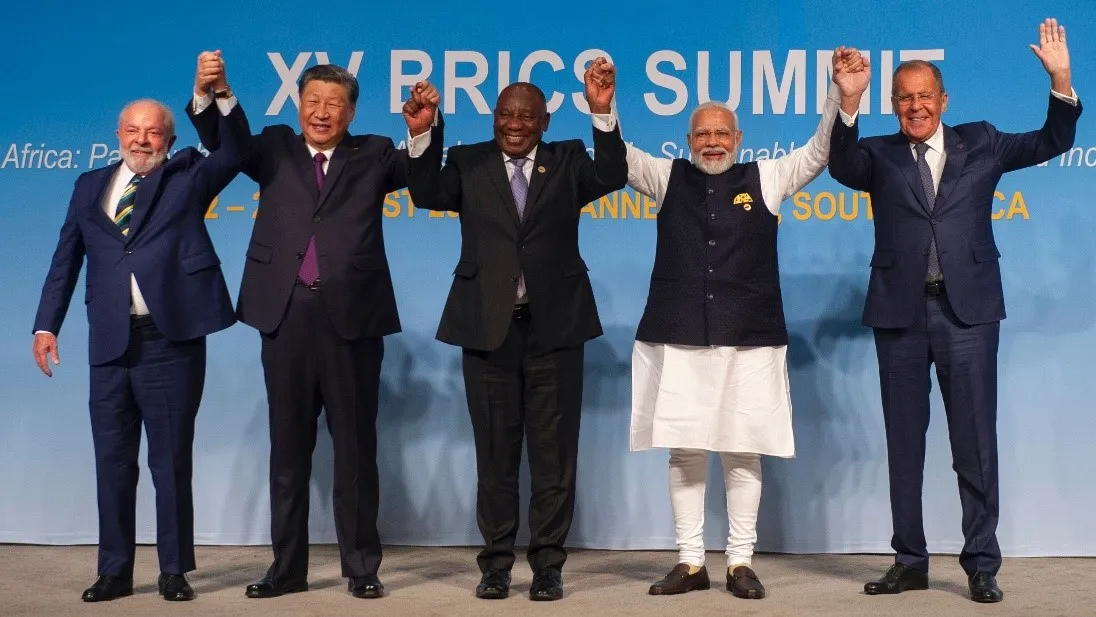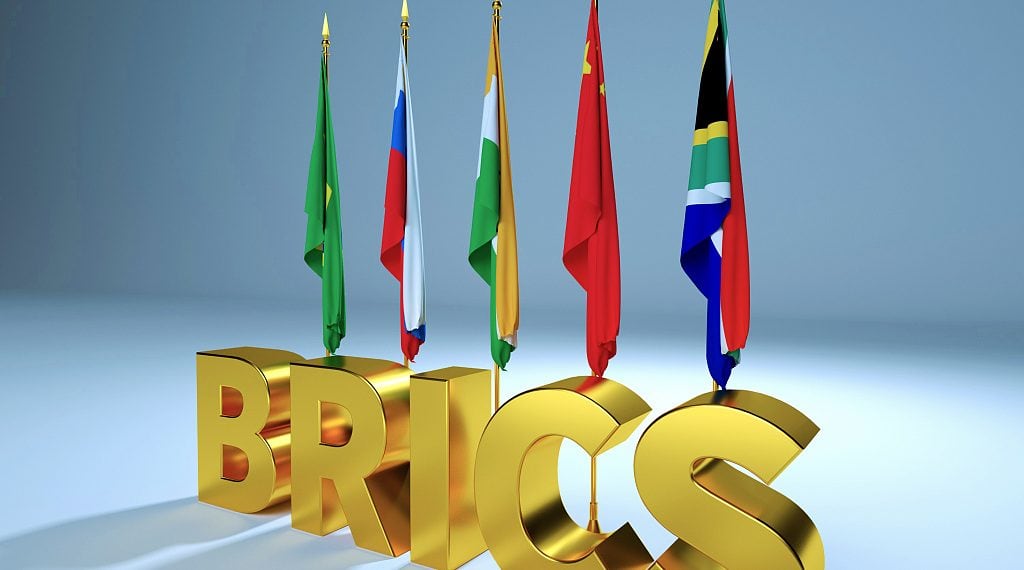South Africa has announced that nearly thirty-four countries have expressed interest in joining the China and Russia-backed BRICS economic group. This development comes after the recent expansion of the group, which saw the inclusion of Iran, Saudi Arabia, the United Arab Emirates (UAE), Ethiopia, Iran, and Egypt.
The current rotating chair, Russia, is accepting applications, marking a geopolitical win for both China and Russia as they challenge the dominance of the United States in the international system.
BRICS, originally comprising Brazil, Russia, India, China, and South Africa since 2011, positions itself as the Global South’s response to the Group of Seven (G7). The recent expansion, viewed as a strategic move, adds momentum to BRICS as it gains more influence and members.
The inclusion of major Gulf economies strengthens the group, especially as Russia, facing economic and diplomatic isolation post-Ukraine invasion, assumes a key role.
This expansion offers Russia an opportunity to push back against its isolation and project itself as a significant player on the global diplomatic stage. The annual summit, scheduled for October in Kazan, Russia, provides a platform for world leaders to convene, with Russia’s President Putin aiming to showcase his influence despite an International Criminal Court warrant related to alleged war crimes in Ukraine.

BRICS, initially formed as a summit-level gathering between Brazil, Russia, India, and China in 2009, expanded to include South Africa in 2011. Last year, six new countries were invited to join, with Argentina being the only one to decline. The move enhances BRICS’ diplomatic and economic coordination, with an emphasis on reforming the United Nations Security Council and reducing dependence on the US dollar in trade.
As BRICS explores the use of local currencies for payments between member states, it signifies a shift away from the traditional US dollar-dominated trade system. The growing interest in joining BRICS underscores its increasing significance as a counterbalance to Western-dominated economic alliances.




